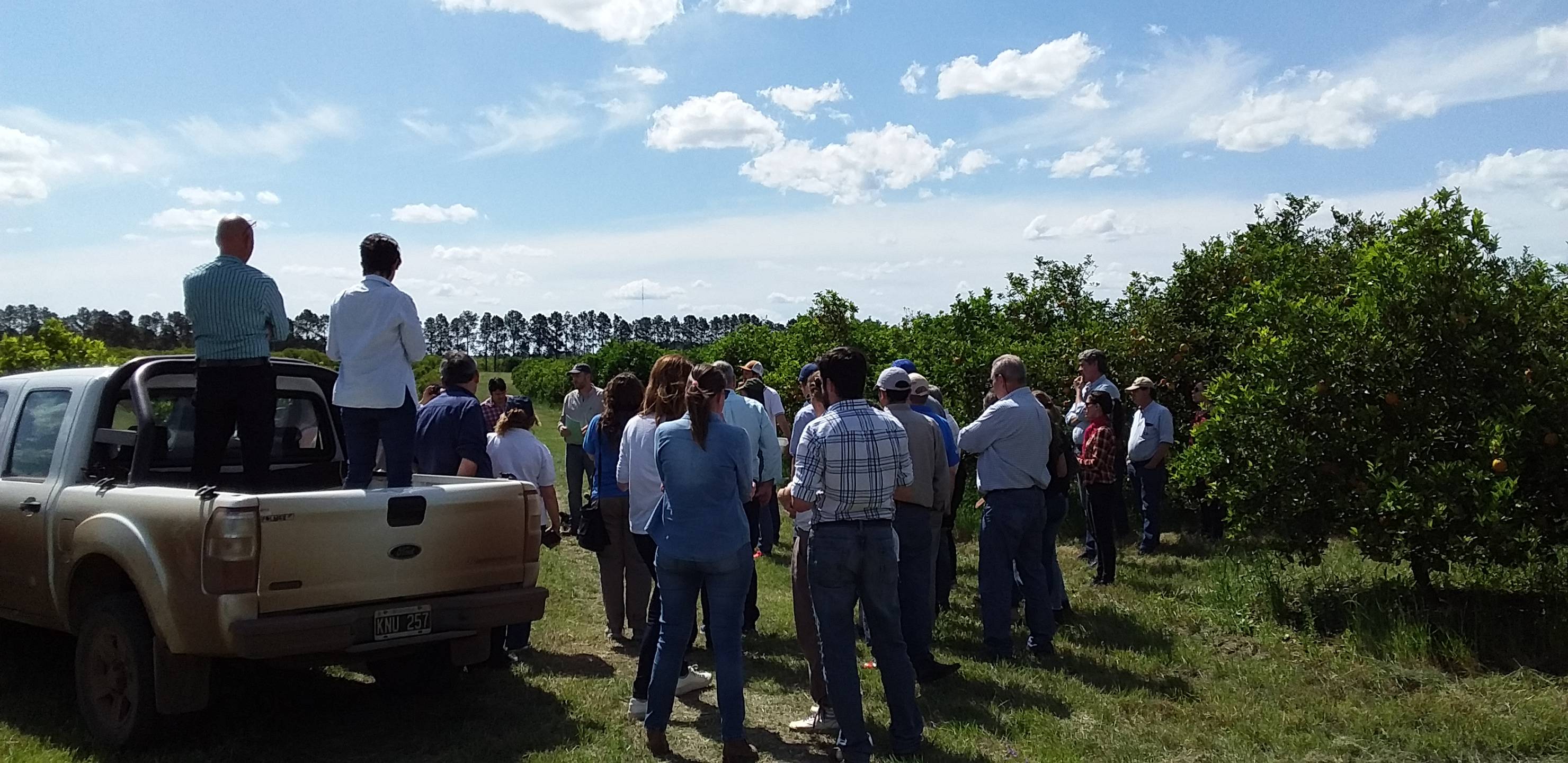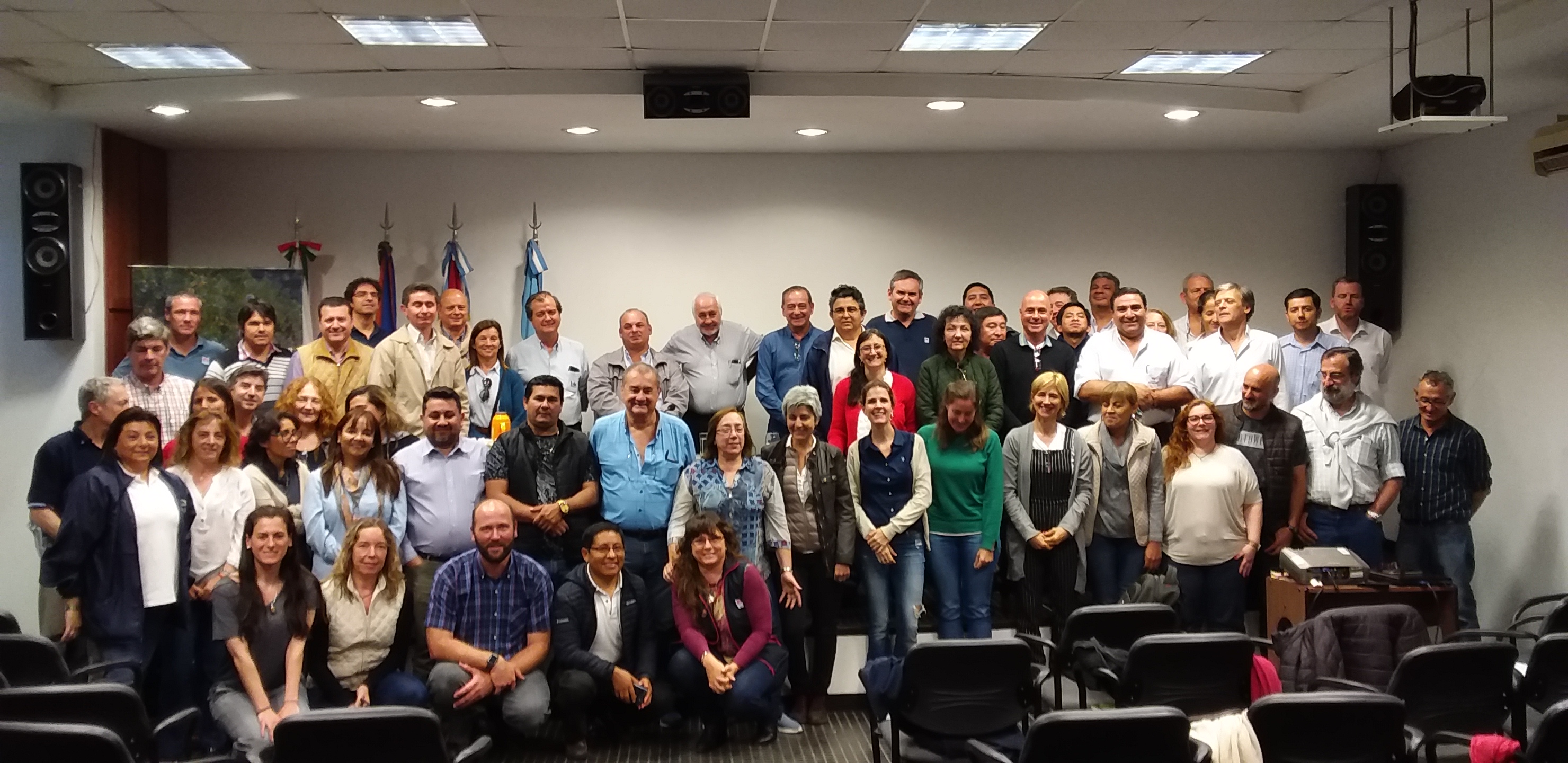
The international project co-financed by FONTAGRO "Sustainable control of the HLB vector in Family Farming in Argentina, Uruguay, Paraguay and Bolivia" had the inaugural meeting in the city of Chajarí, Entre Ríos, Argentina, from October 22 to 24,2019.
Project seeks to prevent the advance of HLB - the most destructive citrus disease in the world - to avoid collapse throughout the socioeconomic and productive ecosystem that constitutes the citrus value chain in the region, which in its primary stage has 180 thousand citrus hectares and more than 6,000 family farmers in Argentina, Uruguay, Paraguay and Bolivia.
City mayor, Pedro Galimberti, Ariel Galmarello Panozzo Chairman of the Citrus Federation Entre Ríos Province, Argentina, Head of INTAs Rural Extension Agency (AER) at Chajarí Sebastián Perini and local project leader were present at the opening ceremony.
Silvana Giancola, researcher at INTA's Center for Research in Economics and Prospective Studies (CIEP) and Project leader also addressed the audience.
More than 70 attended the 2-day workshop: project members from Argentina, Uruguay, Paraguay and Bolivia and relevant local authorities.
As part of the program, the group performed a field visit to a family farm in Villa del Rosario, an area with positive diagnoses for HLB in plants and vector, where the host carried out monitoring practices. After observation, technical advice by professionals working at AER INTA Chajarí AER was provided.
The farm was selected as demonstration lot for FONTAGRO INTA project.
Representatives of all countries involved highlighted the importance and particularities of the project in each region. In this sense, Renán López, from the Municipality of Bermejo, Bolivia, stated, "Citrus farming is growing in our area, which is why we want to prevent massive entry of the disease”.
In the case of Paraguay, Pedro Acuña, from the National University of Itapúa (UNI), expressed: "this project is key action for institutional coordination in the region, since the HLB problem affects us all." Carlos Wlosek, from the same university emphasized "the characteristics of small Paraguayan citrus farmers, where a project like this is even more important to mitigate such a serious disease”.
José Buenahora, from INIA Salto Grande, Uruguay, concluded, "It is a great satisfaction to be here and to provide information to better understand vector performance in our region in the medium term." while Silvana Giancola highlighted "the major importance of the Project to address a strategic problem as a citrus disease that has no current cure”.
Finally, Alcides Aguirre of INTA Bella Vista concluded, “the relevance lies in working with family farmers, an audience that may not have been taken into account in previous projects”.





